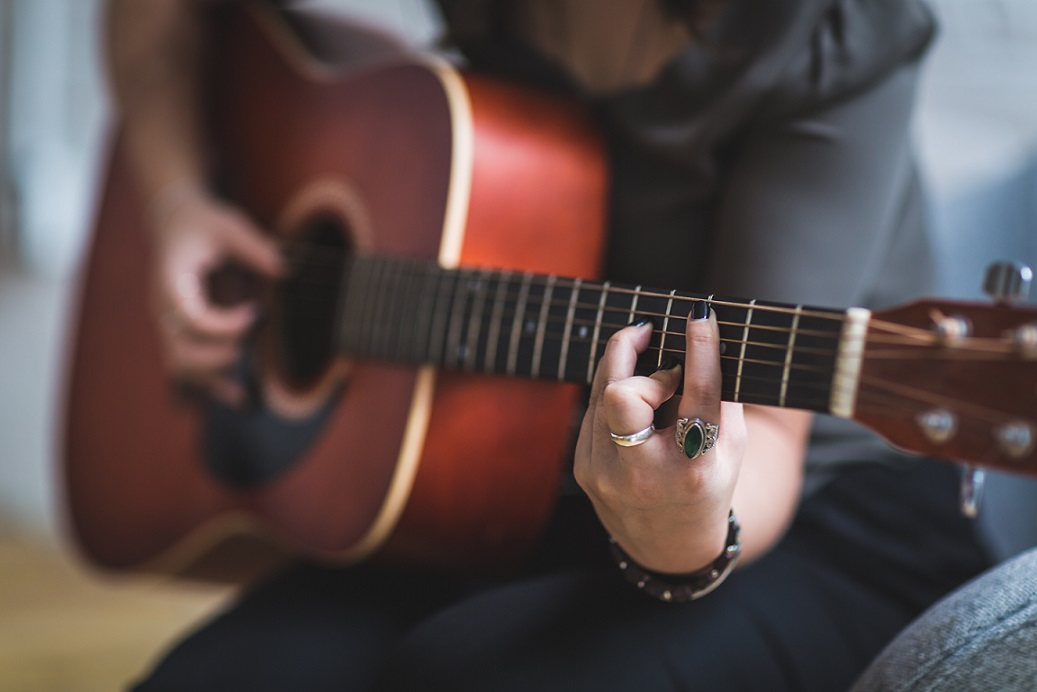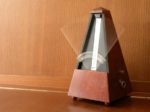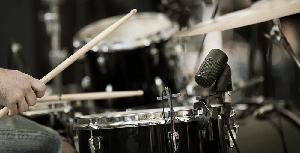
Without a doubt, the most effective way to improve your abilities as a musician is to practice. It seems like common sense, but in today’s fast-paced world that favors activities that provide instant gratification, many people tend to forget the importance of practice. Although there is no shortcut around practice, there are ways to make your practice sessions more enjoyable and effective.
In this article, we’ll talk about how often we should practice, how to mentally prepare ourselves for our practice time, the obstacles of practicing and how to overcome them, and how to establish good practice habits.
How often should I practice?
Honestly, the answer to this question is, “as often as possible.” However, we all have commitments and responsibilities outside music, so sometimes “as often as possible” may only amount to two to three days a week. If that’s the case, consider two principles: (1) consistency is key, and (2) short intense practice sessions are more effective than long, unfocused practice sessions.
Consistently practicing every day or once every other day is a lot more effective than practicing for an extended period of time one day a week. For example, it is better to practice 5-15 minutes every day than 10 hours every Saturday. The reason for this is music playing relies on muscle memory, which develops faster with consistent practice.
Short and intense practice sessions also keep us more focused compared to, for instance, 6-hour practice sessions in which 80% of the time is spent checking your phone and playing songs that you’ve already mastered.
Mentally prepare yourself before practicing
Before beginning your practice, it is useful to go through a mental checklist of your motivations, goals, expectations, possible distractions, and diligence.
As you’re getting ready to practice, remind yourself of what motivates you to play music. It can be something as simple as wanting to impress the ladies, or something spiritual like wanting to connect to a higher level of consciousness through music.
Next, set a short-term goal that can be achieved within a single practice session. Achieving what we set our minds to positively reinforces behaviors and keeps us coming back to the practice room. Setting goals also gives us direction in our practice, which helps us avoid mindless noodling on the instrument.
However, although we should set goals during our practice sessions, we should avoid setting expectations that are too high. This may sound counter-intuitive, especially coming from someone brought up in an Asian culture with extreme expectations, but having high expectations that aren’t consistently met can cause disappointment and dissatisfaction which can lead to resentment towards practice. In other words, set goals for every practice session, but don’t expect to achieve these goals every time. Remember that simply sitting down to practice is an accomplishment itself. If you don’t achieve your goal today, there’s always tomorrow.
Before you begin practicing, remind yourself that your practice time is “you” time and commit to not getting distracted. Make mental notes of possible distractions that can arise during your practice session and make an effort to minimize them. For example, turn off your phone. If you do get distracted, that’s fine. It’s simply human nature for our minds to wander. Just bring yourself back to the practice session.
Finally, commit yourself to diligently engage in the practice instead of procrastinating, getting distracted, or noodling. After all, you’re already about to practice. You might as well do it wholeheartedly.
Obstacles and overcoming them
It’s easy to tell yourself that you’re going to practice diligently for the next 15 minutes, but more often than not, obstacles arise. These obstacles can include: procrastination, distractions, self-doubt, and perfectionism.
Procrastination is a common problem that can be overcome by habit-forming techniques. Simply choose a time and place where you can commit yourself to practicing and do it consistently for a week or so. Before you know it, you will have formed a new habit, and habits are naturally hard to break. If you’re wondering when is a good time and place, well… Right here and right now seems good, right?
Let’s dive into the obstacle of distractions a little more. Maybe you’ve already told yourself that you are going to commit the next 15 minutes to focused practice, and maybe you’ve already made mental notes of the possible distractions, but you still find yourself constantly getting distracted. If that’s the case, try breaking up your practice sessions into smaller chunks. Instead of one 15-minute session, break it up into three 5-minute sessions with short breaks in between to allow the distractions to consume you. Once you feel like you can easily stay focused for 5 minutes at a time, gradually increase the practice duration. Remember that when you’re practicing, you’re trying to achieve the goal you’ve set for yourself. Do not end up noodling for the whole 5 minutes; that isn’t practicing.
Self-doubt can arise when one has set expectations that are too high. Doubt can also arise for those of us who have a habit of comparing ourselves to others. If the thought “I’m not good enough” enters your mind, it might be time to reevaluate your attitude towards playing music and your expectations. It is true that some people pick up skills faster than others, but the problem of self-doubt stems less from your abilities than from your expectations and self-judgement. Instead of questioning whether you’re ever going to be good enough at your instrument, try setting easier goals. The remedy for doubt is trust and confidence that comes from success through persistent effort. If you have to adjust your goals to gain more success, so be it.
Perfectionism is an interesting obstacle to overcome. Oftentimes, people who are perfectionists end up being highly successful at their endeavors, but just as many perfectionists give up on tasks because they fail at becoming “perfect.” Let’s address this now: whenever you pick up a new skill that requires complex fine-motor skills, you’re not going to execute it perfectly all the time. Consistency in such skills requires months or years of repetition, and even then, it’s never perfect. Many of our personal inconsistencies also end up becoming a part of how we sound. All drummers have different grooves from each other not because they worked on perfecting that specific style of playing, but rather it’s an accumulation of inconsistencies in technique and timing they picked up over the years. Only a drum machine can play perfectly and consistently, but which feels more natural? Man or machine?
I’m not saying that we shouldn’t attempt to practice perfect technique; all I’m saying is true perfection is only reserved for machines, so don’t get discouraged when you find inconsistencies in your playing.
Establishing good practice habits
Establishing practice habits that work towards perfect technique is probably the most important aspect of this article. All that mental preparation will be meaningless if you end up practicing sloppy technique. With the appropriate approach to practice, you will only have to learn a new technique once, instead of having to come back a couple of years down the road to correct bad habits. My army sergeant major used to say, “Do it once; do it well.” The guy was a monster, but he did have a point.
The first thing you should do whenever learning something new is to start slow. This is true for music, martial arts, visual arts, and anything that requires a high level of physical coordination. Start slow enough so you can stay relaxed and observe your technique. Since we’re starting slow, errors in our technique can be quickly identified and corrected.
You may begin your practice slowly and diligently, but more often than not, enthusiasm or impatience prompts you to speed up. In order to counter this tendency, use a metronome to keep yourself in time. A metronome teaches you how to stay in time and gives you a clear indication of your progress. You can incorporate your metronome speed into your goal for the day. If I started at 60 bpm and ended my practice at 120 bpm, I have made progress.
Very often, we will find ourselves bored with our practice and end up noodling around songs that we’re very familiar with. This is due to the repetitive nature of practice. However, always remember that the point of practicing is to work on things that you can’t do. Practice time is scarce and precious, so don’t waste it on practicing things you can already do.
The most common bad habit I’ve observed over my years teaching beginners is the tendency to tense up and over-exert our focus. When your body tenses up, you perform a lot more inefficiently. Have you ever heard athletes talk about how they perform at their best when they are loose and relaxed? You will have to occasionally remind yourself to relax and let go of any conscious effort and control. It might feel strange and unnatural initially, but this is the best way to allow your body to perform at its highest capacity. Teaching yourself to relax when you play will also become extremely useful if and when you perform, which leads us to our final practice habit.
Everyone should practice performing in front of a crowd. Whether it’s a crowd of strangers in a dive-bar or a group of your closest friends, performing for an audience will feel completely different compared to playing alone at home. Your body might tense up due to stage-fright, worry, and desire for perfection. This is the ultimate test of whether your mental habits and practice routines are effective. Your practice comes to fruition when you’re able to let go of all control and let the music take over when it’s time to play. If you successfully enter a flow state while performing a song, that’s great! That means you’ve more-or-less nailed the song. Some songs may require a little more conscious effort, which means they still need more work. If the worst case scenario occurs and you completely botch the performance, it’s okay! Remember, there is no mortal danger for putting on a bad performance. You just have to keep practicing.
What should I practice?
So we’ve talked about how you should prepare yourself for practice, and how to establish good practice habits, but the million-dollar question still lingers: what should I practice?
The only person that can answer that question is yourself. What kind of music do you enjoy listening to? Do you prefer set pieces or do you like to improvise? Do you want to focus on technique or expression? These are the kind of questions that you have to ask in order to establish a clear path for yourself.
Once you have an idea of what you’d like to work on, consider checking out our website for high-quality and structured lessons.
Okay, enough of reading. Get back to practicing!
Ready to learn music?
Start learning with our 30-day free trial! Try our music courses!
About Liberty Park Music
LPM is an online music school. We teach a variety of instruments and styles, including classical and jazz guitar, piano, drums, and music theory. We offer high-quality music lessons designed by accredited teachers from around the world. Our growing database of over 350 lessons come with many features—self-assessments, live chats, quizzes etc. Learn music with LPM, anytime, anywhere!










